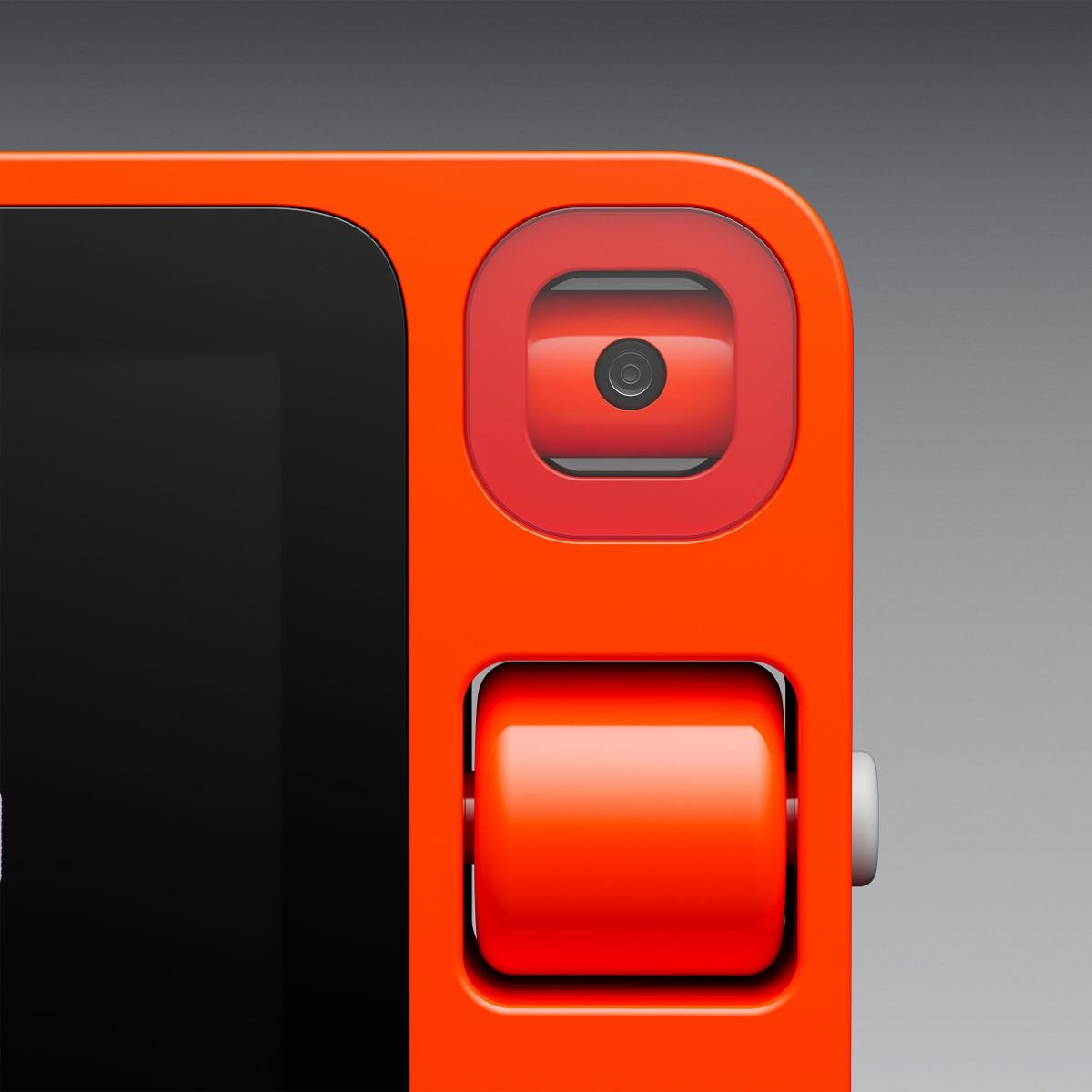Our phones are great at many things, like snapping vacation photos, entertaining us with an endless stream of bite-sized videos and acting as our personal planners. But that’s actually problematic, according to Jesse Lyu, founder and CEO of AI tech startup Rabbit. He thinks the myriad apps and functions available on our phones have stripped away their simplicity, and he’s trying to change that with a new gadget called the R1.
The R1, which debuted at CES 2024, is a mobile device designed to answer requests and handle tasks rather than run apps. There are no actual apps on the R1; instead you press a physical push-to-talk button to launch a music playlist or book a taxi as if you were speaking into a walkie-talkie. The phone’s software is powered by a large action model, or an algorithm that can learn from how humans use apps and interfaces so that it can replicate and automate those processes. Lyu likens it to handing your phone to a friend to order takeout rather than doing so yourself. The R1 ships in late March for $199.

Watch this: This App Turns Your Smartwatch Into a Wearable Mouse
03:09
<!–>
Read more: Your Next Phone Will Likely Be Smarter, Faster and More Bendy
There’s no shortage of virtual assistants capable of doing almost exactly what Rabbit’s R1 claims to do. Google and Amazon are also injecting their own virtual helpers with generative AI smarts to make them even better at handling complex requests more easily. But Lyu sees the need for a purpose-built device for getting things done that’s separate from your phone and therefore less distracting. He argues that just because your phone can do the same thing doesn’t mean it’s the superior experience.
That argument will take a lot of convincing, especially considering how glued to our phones we’ve become. A survey from Reviews.org found that 89% of Americans check their phone within the first 10 minutes of waking up, and 60% sleep with their phone at night. Still, the Rabbit R1, along with startup Humane’s recently announced AI pin, is another sign that tech companies are increasingly looking to build new gadgets around AI.
The R1 has a simple look

A close up of the Rabbit R1’s camera and scroll wheel.
The R1’s bright orange hue, relatively small screen and scroll wheel give it a nostalgic and almost retro look. The R1 physically shares some similarities with smartphones, such as a touchscreen display and a camera, but those parts are put to use in different ways.
The R1 doesn’t have a traditional phone operating system, for example, but instead uses that 2.88-inch screen to display cards in response to your requests. The camera isn’t really meant for documenting your days on Instagram, but rather is intended to assist with visual queries like snapping photos of what’s in your fridge to generate recipe ideas.
Although it’s not being positioned as a phone, you can certainly make phone calls with it since it has a SIM card slot along with WiFi and cellular connectivity. It runs on a 2.3Ghz MediaTek Helios P35 processor and has 128GB of storage and 4GB of RAM.
It doesn’t run apps, but it can connect to your apps

–> <!–>
The Rabbit R1
The R1 doesn’t have apps in the traditional sense, but it connects to services to carry out requests. Playing a playlist in Spotify or calling an Uber requires you to link those apps to your Rabbit account through an online portal. That could end up being a cumbersome process considering you’d have to manually connect any service you’d want Rabbit to factor into your usage. Rabbit says it doesn’t store any login data and authentication methods happen on the app’s system.
With the R1, Rabbit is taking on an ambitious goal by trying to carve out a place for a new gadget in our lives in a world that’s already overrun with screens and sensors. But it’s interesting nonetheless to see new hardware developed in response to the increased interest in AI we’ve seen over the past year. Still, Rabbit’s software experience has to be compelling enough to convince you to buy a new device rather than continuing to use ChatGPT, Google Bard and other AI helpers on the devices you already own.
Editors’ note: CNET is using an AI engine to help create some stories. For more, see this post.
–>